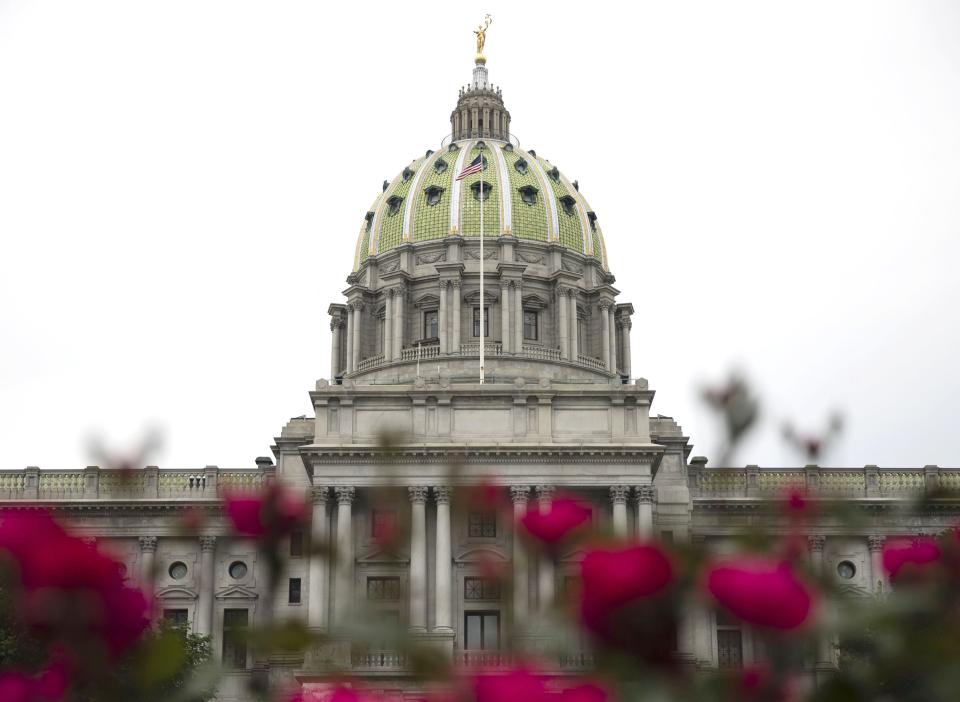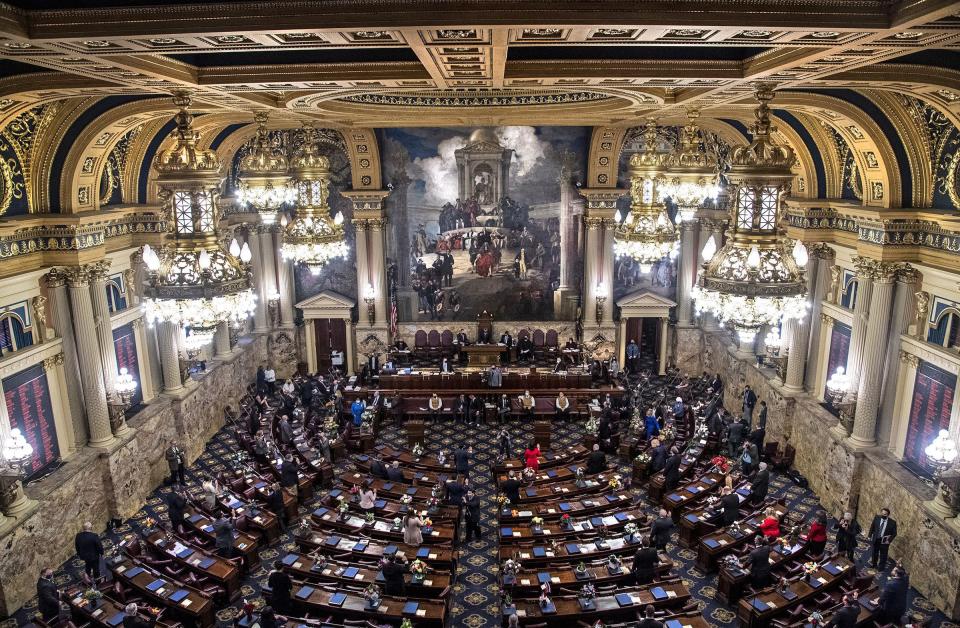Unleash Pa. growth by cutting corporate taxes and regulatory red tape
- Oops!Something went wrong.Please try again later.
The late U.S. Supreme Court Justice Louis Brandeis famously said states are the “laboratories of democracy.” That still being the case, policymakers in Harrisburg would do well to note how the current state of affairs is being scored by governors of other states — and, in turn, chart a new course by embracing pro-growth tax and regulatory reform during upcoming budget negotiations.
Arkansas recently made headlines for securing a $3 billion investment from a leading steel company for new, highly efficient mills to be built in the state. Asa Hutchinson, the state’s governor, crowed that the plants, which will support 900 jobs paying six figures, would be built “before you could even get a permit to start construction in Pennsylvania.”

Gov. Hutchinson’s taunt should be a wake-up call. Pennsylvania lost another congressional seat during the decennial redistricting for the umpteenth time in a row. Our state is stagnating in population; in fact, the Keystone state is losing out to states in the Southeast and Sunbelt with better economic climates. Despite our significant natural resources, access to markets and world-class universities, too many young people are leaving home for work or to start a business somewhere else. It’s time we take bold steps to turn this state’s fortune around.

We’re pleased to see Gov. Wolf and the legislature agree on this point — leaders in the House and Senate, along with the governor, have identified cutting the state’s onerous corporate tax rate as a priority for budget negotiations, and legislation to reduce the corporate net income tax has already passed the House. We understand some may caution that the state’s rapidly aging population will present significant strain on public resources in future years. But encouraging additional business investment into the state means a shored up fiscal picture through increased business activity, more people working (and paying taxes) and a more vibrant civic life. That’s why we’ve joined nearly 50 other state and local chambers last week emphasizing it is time for a meaningful reduction in the corporate tax rate.

A lower corporate rate means a Pennsylvania that is more welcoming to start-ups and entrepreneurs, and to a reshoring of manufacturing that is ongoing as supply chains realign themselves in the wake of a global inflationary crisis. As noted in the chamber coalition letter, studies have shown that the benefits of CNI reduction go far beyond attracting new business and investment. Studies have shown that a lower CNI rate would increase state GDP, boost wages and home values, create family sustaining jobs and attract and retain new talent.
But as Gov. Hutchinson’s comments should make clear, competitive tax rates aren’t sufficient if the time to get through permitting is prolonged. That’s why our organization has supported thoughtful reforms that provide additional resources to state agencies for permit reviews and that cut down on the time it takes to get through litigation. Too often, anti-growth environmentalists use the courts to stall construction on new projects. Given that the state’s air and water quality regulations are among the most stringent in the nation, such delay tactics are misguided and quite likely net-negative on balance, should the result be that the new facility is built in another country that doesn’t share our commitment to stewardship. Congress understood red tape needs cleared in order to build the infrastructure necessary for a modern economy when it included significant permitting reforms in last year’s bipartisan infrastructure bill. Moving Pennsylvania’s economy will require the state legislature and governor to build on these reforms at the state level.
The aforementioned trends on Pennsylvania’s population loss and middling economic attractiveness aren’t going to fix themselves just because the pandemic appears to have receded. Every one of the states that gained a congressional seat in redistricting has more people working today than prior to the pandemic. In contrast, Pennsylvania’s labor force is lower by nearly 200,000 people. Many in our state have retired or taken advantage of remote work and gone somewhere else — which is a shame, given many corners of this state are as scenic as anywhere in this entire country.
Another underrecognized phenomenon of the pandemic is the number of new businesses being created. Despite the massive uncertainty the crisis presented, a record 5.4 million Americans started a business in 2021, according to census data. But it’s clear Pennsylvania lost out on a good share of these startups, given continued declines in the labor force.
People are on the move; let’s welcome them home and welcome them here. New businesses are being created in record numbers; let’s make sure they’re created here. The supply chains are realigning; let’s make sure they find a foothold in the Keystone State.
Let’s make this happen in this year’s budget.
Gene Barr is the president and CEO of Pennsylvania Chamber of Business and Industry.
This article originally appeared on Erie Times-News: PA Chamber head calls for corporate tax reform in new state budget

